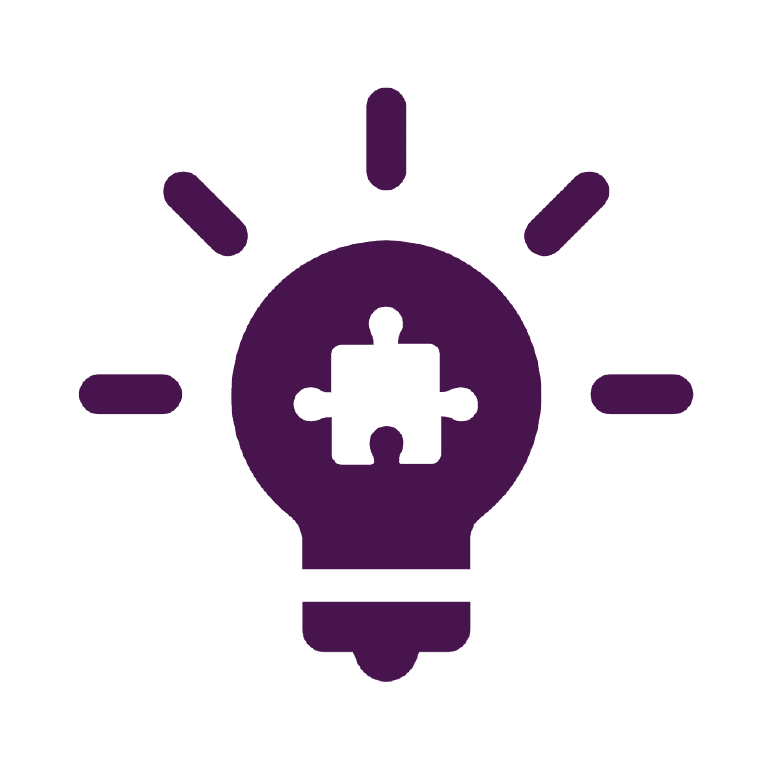

The Challenge
Their Challenge:
One of the top telecommunication companies in the world is pursuing an ambitious corporate strategy that entails a digital transformation of its entire operations, expanding its service offerings, and exploiting new business opportunities to become a global reference point and leader within its industry. They sought a partnership with Enterprise Knowledge (EK) to assess the company’s current knowledge management (KM) maturity and elaborate a vision for future KM capabilities and practice that would support this corporate agenda.
During the process of defining a KM Strategy and Roadmap to guide the company in increasing its KM maturity, EK surfaced important considerations – based on the company’s culture and staff’s experience with past changes – that would need to be addressed when implementing the KM Strategy and Roadmap and introducing the associated changes:
- Communication around past initiatives has been either too complex for staff to understand the initiative’s value or hasn’t been sufficiently targeted to specific employee groups. Staff hasn’t had a clear understanding of how a change will benefit them, resulting in reduced engagement.
- The company hasn’t typically established two-way communication channels during a change initiative to address concerns, mitigate resistance, correct misinformation, and allow for input that can drive improvements to those overseeing a change.
- Staff primarily follow vertical lines of communication to share information from senior leadership to non-supervisory employees. As a result, important information doesn’t always trickle down to non-supervisory employees.
- Those in middle management have not been fully “activated” – they aren’t always communicating in a way to help their employees understand the need for and impact of an organizational change, nor are they holding their staff accountable to requested changes.
- There are many concurrent activities that are requiring staff to take on new projects and responsibilities, adapt to new requirements, and adjust ways of working. Staff are experiencing varying levels of change fatigue, and express uncertainty over how these initiatives are aligned and where to focus their attention.
- There are groups within the company who are more heavily invested in how things are done today as well as those who are more responsive to change. This reality plays out in the varying degrees to which people are willing to share information with their colleagues.

The Solution
As part of EK’s nine-month, enterprise-wide effort to assess the company’s current KM maturity and elaborate a vision for future KM capabilities and practices, EK developed an Integrated Change Management Plan to support the implementation of the KM Strategy and Roadmap. To define a bespoke set of change management recommendations and communication practices, EK engaged internal stakeholders to discuss 1) lessons learnt from their past experiences with organizational changes, 2) the critical factors that mean the difference between success and failure on a project or change initiative, and 3) how information gets distributed across the organization and top down. EK disseminated and analyzed results of a KM survey to surface staff perspectives on what motivations (e.g., incentives, rewards, and recognition) could be offered or would be desired to support KM practices. Additionally, EK led interviews and workshops that informed our understanding of the company’s organizational structure, lines of authority, information flow patterns, cultural nuances, and those who could serve as key partners in supporting the KM Strategy and Roadmap.
The Integrated Change Management Plans includes:
- A purpose statement to generate momentum and align on what success is anticipated to look like as a result of implementing the KM Strategy and Roadmap.
- A list of success indicators and preliminary activities to guide the company’s change management strategy and track whether outcomes are being realized.
- The people who will be impacted by and whose involvement will be necessary in the implementation of the KM Strategy and Roadmap.
- Critical messages to use and considerations to keep in mind when communicating about the KM Strategy and Roadmap.
- Recommendations for how to address risks that are unique to the company’s culture and organization and that could jeopardize success of the KM Strategy and Roadmap if left unattended.

The EK Difference
EK engaged the company’s KM project team in helping to define what success will look like for its KM Strategy throughout the implementation of the two-year Roadmap. Through holding a Visioning workshop with the KM project team, EK was able to co-create success indicators – i.e., outcome-based statements that are specific and measurable – that would ultimately support the company in tracking whether it is realizing the outcomes it hopes to achieve with a KM Strategy. This co-creation session was critical to gaining alignment on what success will look like and identifying a “North Star” for the Strategy. By engaging the KM project team as partners in this process, EK was able to understand what meaningful success looks like and develop a process that the company can use to define: corresponding metrics for each success indicator; the critical behaviors that will need to be performed consistently by the company’s workforce to bring about success; and the ways in which the company can provide support for critical behaviors to ensure those behaviors occur at the desired consistency and rate.

The Results
The company was appreciative of the detail and customization that were evidenced in the Integrated Change Management Plan. The company continues to work with EK to provide training to KM team members focused on strengthening their ability to manage and lead change. With the Integrated Change Management Plan, the company’s KM Leadership Team are well equipped to:
- Give the implementation of the KM Strategy and Roadmap high relevance and visibility;
- Facilitate open communication about the Strategy’s purpose and desired outcomes;
- Educate employees on how they can expect to benefit from having more robust knowledge capture, storing, and sharing practices in place;
- Communicate the roles, responsibilities, and expectations of leadership, middle management, and non-supervisory staff in leading and supporting the rollout of the KM Roadmap; and
- Make data-driven decisions on how to pivot communication and engagement strategies as needed.
The company’s Integrated Change Management Plan provides recommendations that will support the company’s workforce in sustainably adjusting to new ways of creating, managing, storing, and sharing knowledge, information and data. With an Integrated Change Management Plan to accompany its KM Strategy and Roadmap, the company is well positioned to realize its corporate agenda and goals of enabling staff to exchange knowledge, experience, and insights in support of collaborative problem-solving, decision-making, and the development of transformative services and platforms.
